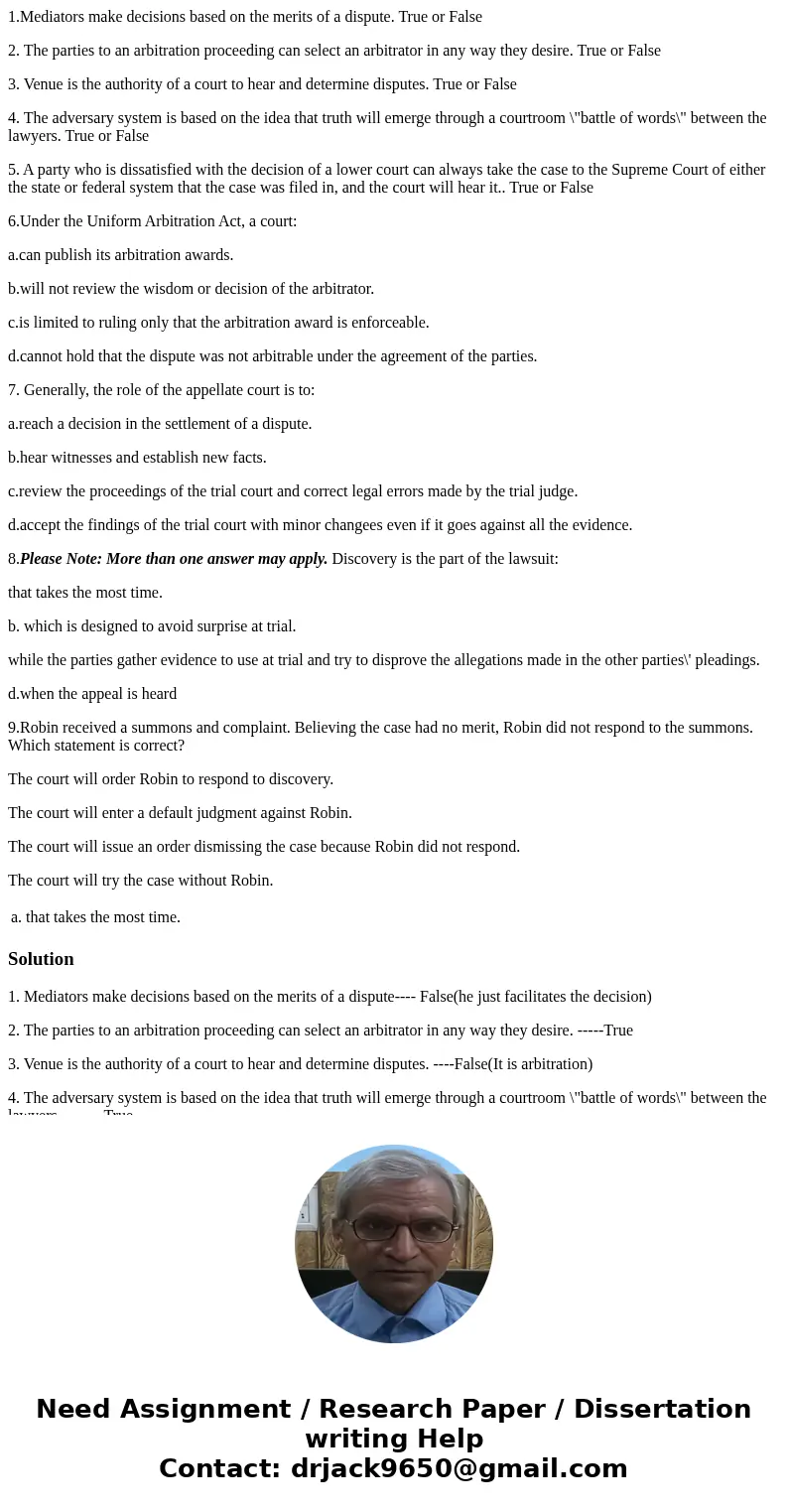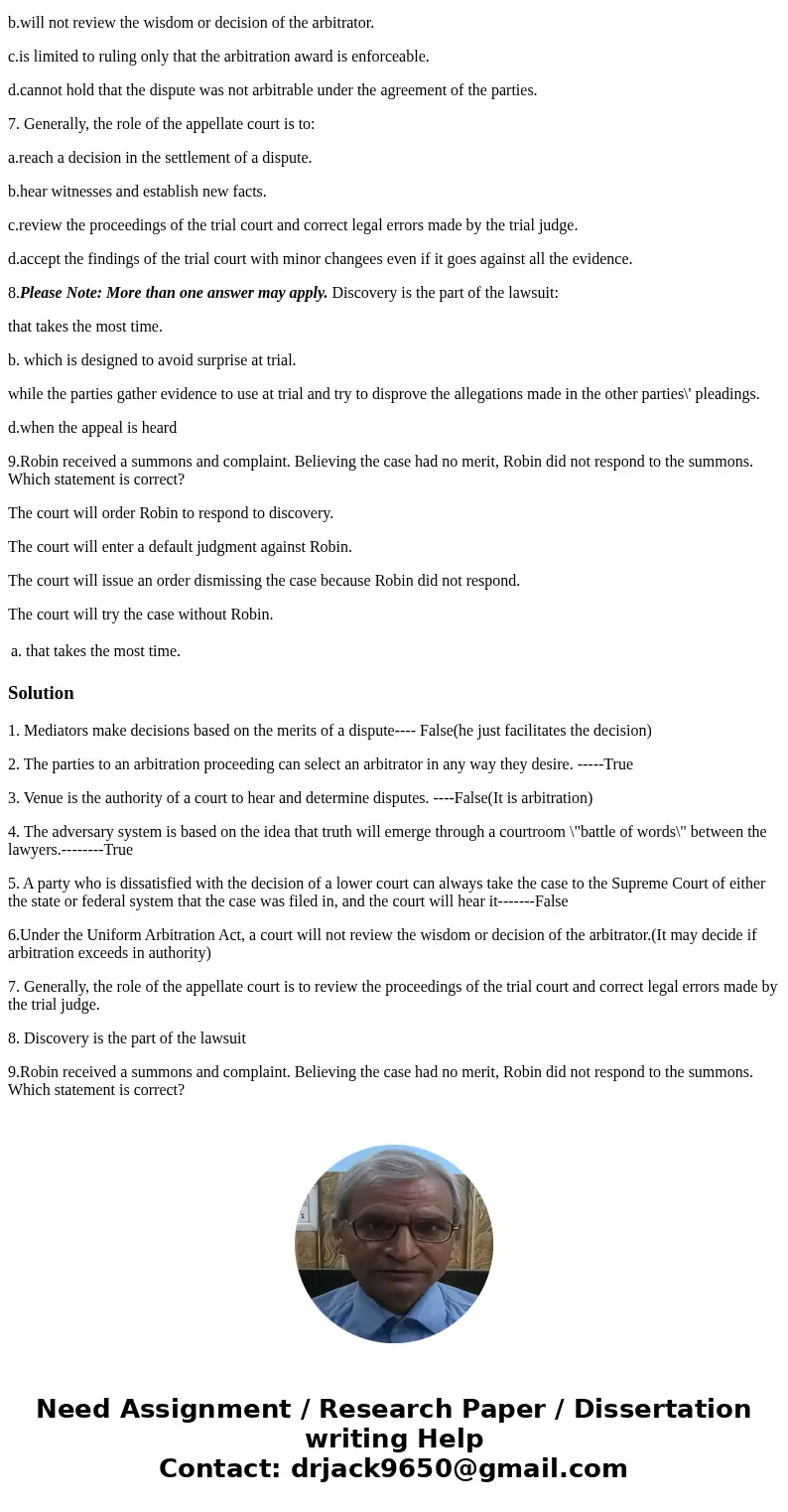1Mediators make decisions based on the merits of a dispute T
1.Mediators make decisions based on the merits of a dispute. True or False
2. The parties to an arbitration proceeding can select an arbitrator in any way they desire. True or False
3. Venue is the authority of a court to hear and determine disputes. True or False
4. The adversary system is based on the idea that truth will emerge through a courtroom \"battle of words\" between the lawyers. True or False
5. A party who is dissatisfied with the decision of a lower court can always take the case to the Supreme Court of either the state or federal system that the case was filed in, and the court will hear it.. True or False
6.Under the Uniform Arbitration Act, a court:
a.can publish its arbitration awards.
b.will not review the wisdom or decision of the arbitrator.
c.is limited to ruling only that the arbitration award is enforceable.
d.cannot hold that the dispute was not arbitrable under the agreement of the parties.
7. Generally, the role of the appellate court is to:
a.reach a decision in the settlement of a dispute.
b.hear witnesses and establish new facts.
c.review the proceedings of the trial court and correct legal errors made by the trial judge.
d.accept the findings of the trial court with minor changees even if it goes against all the evidence.
8.Please Note: More than one answer may apply. Discovery is the part of the lawsuit:
that takes the most time.
b. which is designed to avoid surprise at trial.
while the parties gather evidence to use at trial and try to disprove the allegations made in the other parties\' pleadings.
d.when the appeal is heard
9.Robin received a summons and complaint. Believing the case had no merit, Robin did not respond to the summons. Which statement is correct?
The court will order Robin to respond to discovery.
The court will enter a default judgment against Robin.
The court will issue an order dismissing the case because Robin did not respond.
The court will try the case without Robin.
| a. | that takes the most time. |
Solution
1. Mediators make decisions based on the merits of a dispute---- False(he just facilitates the decision)
2. The parties to an arbitration proceeding can select an arbitrator in any way they desire. -----True
3. Venue is the authority of a court to hear and determine disputes. ----False(It is arbitration)
4. The adversary system is based on the idea that truth will emerge through a courtroom \"battle of words\" between the lawyers.--------True
5. A party who is dissatisfied with the decision of a lower court can always take the case to the Supreme Court of either the state or federal system that the case was filed in, and the court will hear it-------False
6.Under the Uniform Arbitration Act, a court will not review the wisdom or decision of the arbitrator.(It may decide if arbitration exceeds in authority)
7. Generally, the role of the appellate court is to review the proceedings of the trial court and correct legal errors made by the trial judge.
8. Discovery is the part of the lawsuit
9.Robin received a summons and complaint. Believing the case had no merit, Robin did not respond to the summons. Which statement is correct?


 Homework Sourse
Homework Sourse